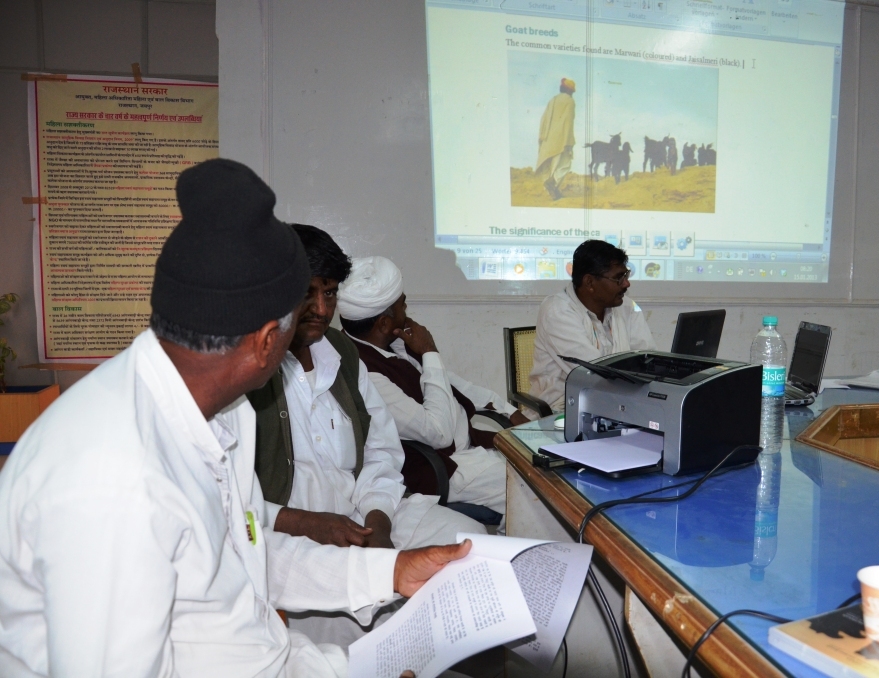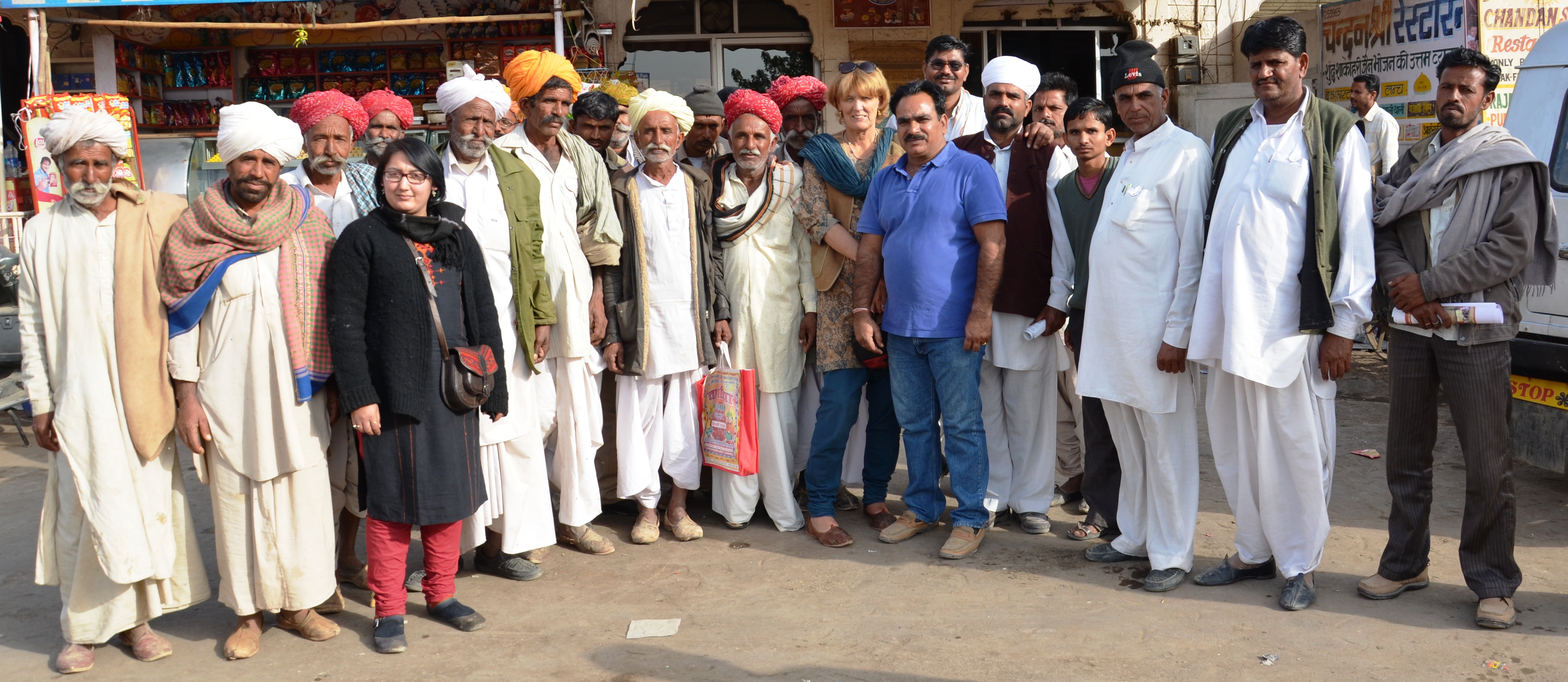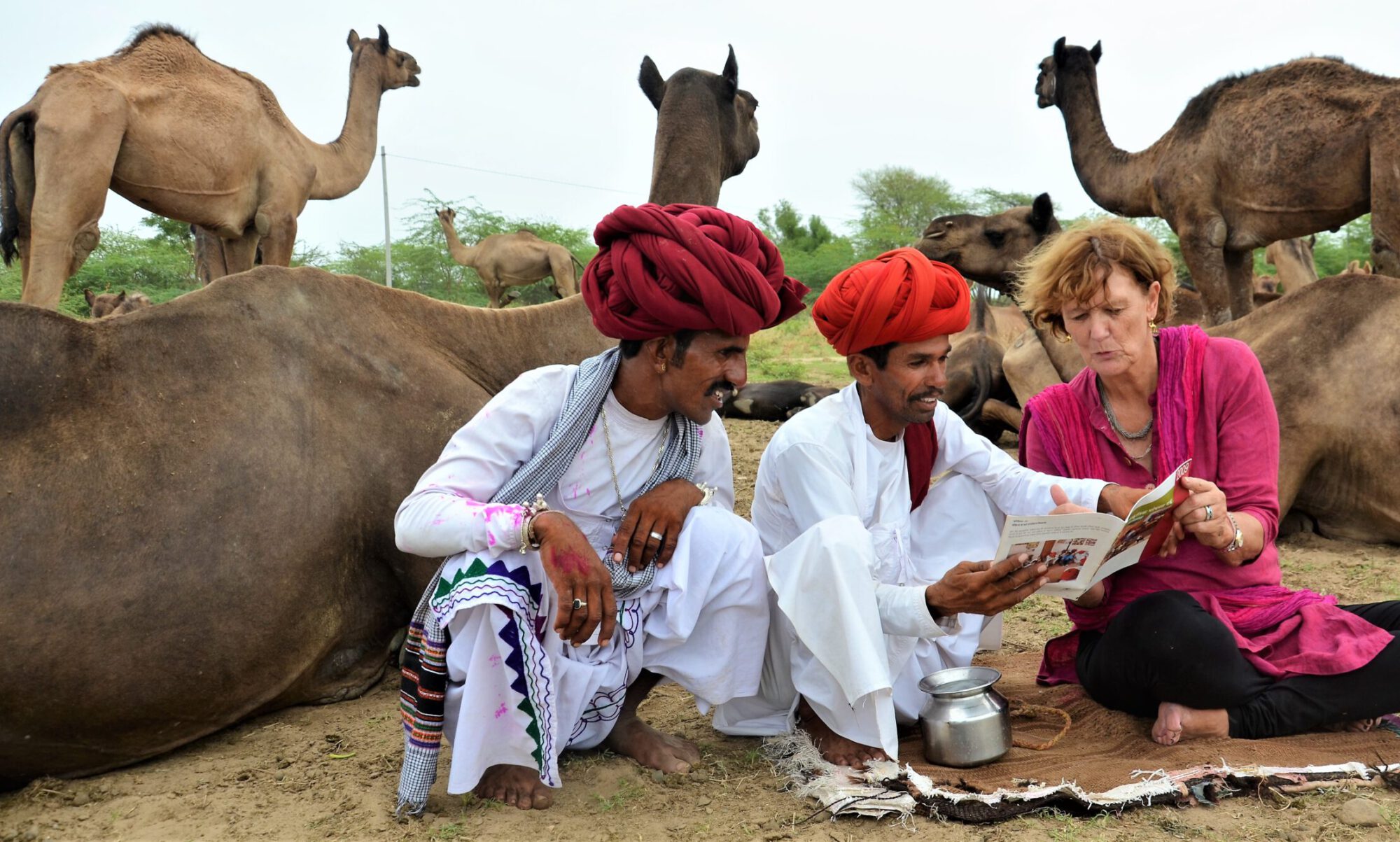
Jaisalmer is one of the fastest developing districts in Rajasthan , or even India. The once empty desert spaces are now being mined – for wind energy, solar energy, oil, stone, etc. This development if good for some, especially the large corporations behind these activities, but the majority of the local people, with their dependence on livestock keeping are losing out. For this reason, Lokhit Pashu-Palak Sansthan is supporting the Jaisalmer Camel Breeders Association to develop their Biocultural Community Protocol under the United Nations Convention on Biological Diversity. In this they put on record their role in conserving the local camel breeds as well as the associated rangeland biodiversity – many traditional practices exist or existed to conserve the enviornment, but – as is also becoming clear – they are erdoding rapidly and will soon be forgotten. Camel breeding has lost its status and attraction for young people.

The process to develop the BCP was already initiated some time ago, but now it was time to check the facts and focus on the essential points. So about 35 camel breeders assembled in the meeting hall of Jaisalmer’s rural development authority and went through the draft document. Many bits and pieces were added, but further checking will be required, as at least seven different castes and communities have a common identity as camel breeders. Each one has a slightly different take on issues.
Hopefully this process will be completed in the next couple of months, so that the BCP can be released and shared with officials and the public at large.

 Follow
Follow
Reblogged this on Camel, food security and climate change .